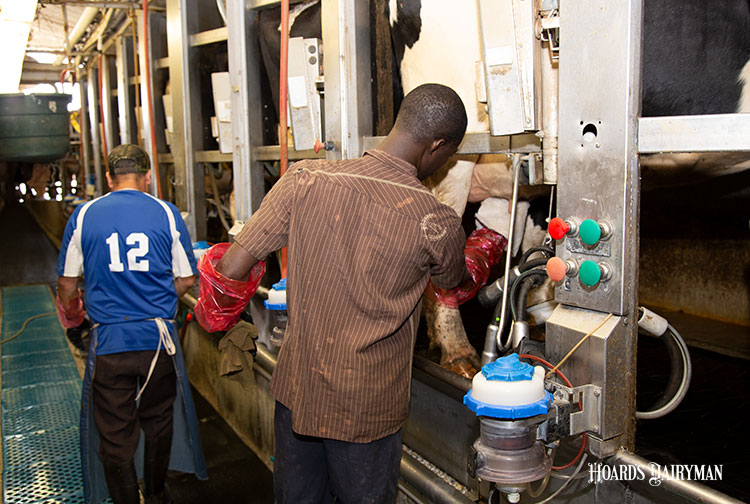
Even before the pandemic, but especially since, calls for change have been heard in the dairy industry from nearly every group involved — farmers, processors, cooperatives, haulers, and more. The details vary depending on the perspective, but they are generally calling for fairness, resilience, and transparency. There is no doubt the impetus in these groups is there. But, consensus between groups does not always seem to be.
Changing that stalemate was the goal of the New York Dairy Roundtable hosted in November. Leaders of the Northeast Dairy Producers Association (NEDPA) developed the idea to bring together industry stakeholders to discuss future challenges and opportunities to dairying in the region. “We wanted everybody to be in the same room to have that conversation together,” explained NEDPA vice chair Keith Kimball during a follow up discussion at the Northeast Dairy Management Conference.
Those present at the roundtable included dairy farmers like Kimball, representatives from dairy processors and Farm Credit, and, most notably, the agriculture committee chairs of the state Senate and Assembly. Kimball highlighted two main messages that were discussed during the event: workforce development and business uncertainty.
Significant labor shortages were emphasized by every member along the supply chain, from farmers to truck drivers to processing plants. They advocated that a better job needs to be done in educating young people about these types of career opportunities. “There are a lot of really good jobs in agriculture, and maybe that doesn’t always come across,” Kimball noted during the conference.
On the business side, Kimball explained that the participants stressed to their legislators that the cost to operate in the state can put them at a competitive disadvantage compared to other parts of the country or the world. Instead of additional charges and fees, farmers and processors encouraged tax incentives and grants that could attract new facilities and support the companies that have already developed in the state.
To the plant
Barney McConnell, the director of transportation for Dairy Farmers of America (DFA), added during the conference that the infrastructure bottlenecks impacting milk hauling and processing come from a variety of factors. He started with the fact that there are not enough 24-hour plants and said that shutdowns on weekends and holidays are done to help retain employees but also create complications. Reroutes to accommodate shutdowns add another layer of uncertainty.
“It takes all of us,” McConnell said of a smooth supply chain. “It’s not all on the farm, it’s not all on the hauler, and it’s not all on the plants.” The entire process depends on people and machines which can call in sick or break down with no notice, so flexibility is critical.
In order to help each other, McConnell seconded Kimball’s point about promoting jobs in agriculture, noting that a lack of milk truck drivers stems from a lack of experience and training. Additionally, he advised farmers to have adequate on-farm storage and a good window of time for the milk truck to come. He also noted that plants shouldn’t view milk trucks as extra storage because it creates long lines and route delays.
To continue the dialogue started at the roundtable in November, NEDPA is still engaged in discussions with trade organizations and is having monthly follow-up meetings with the state department of agriculture and markets. The goal is to maintain a roundtable discussion annually so that all parties can come together to discuss challenges and solutions, Kimball shared.








